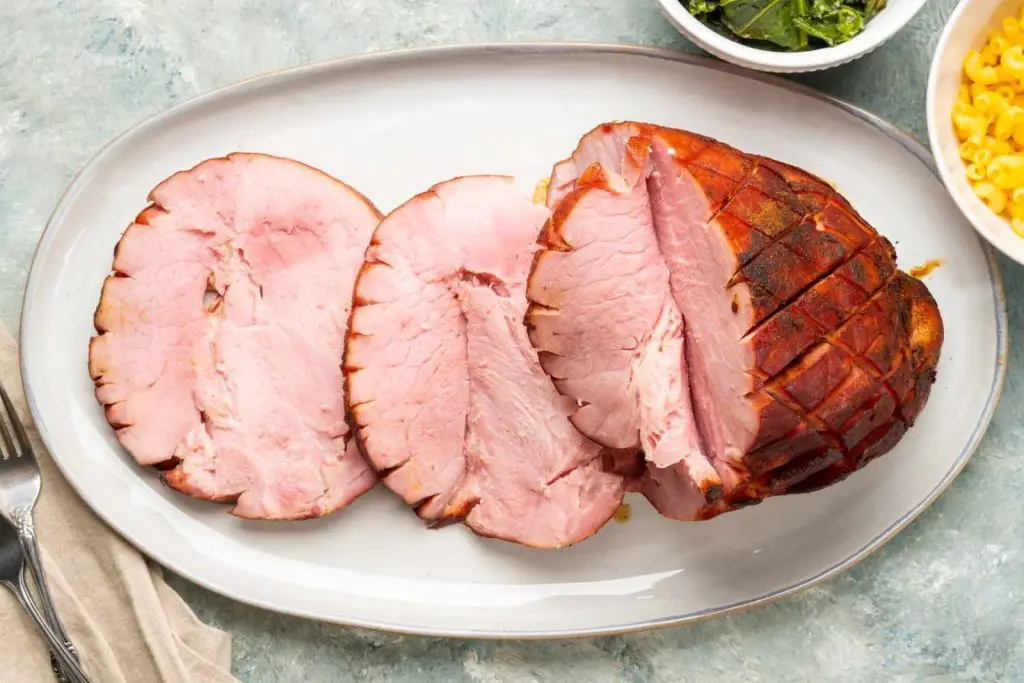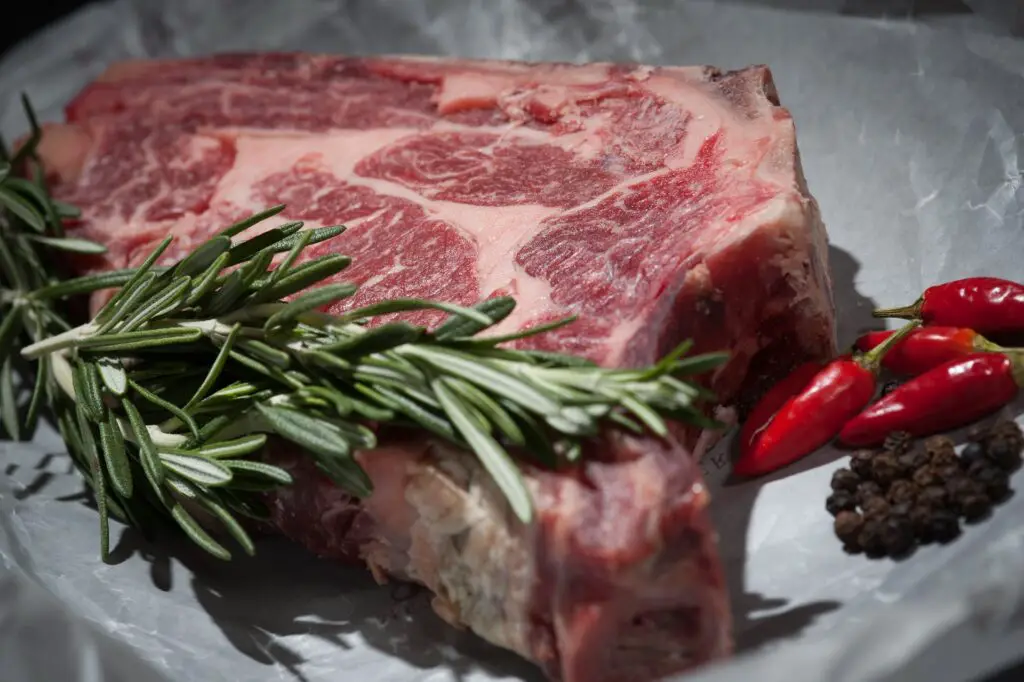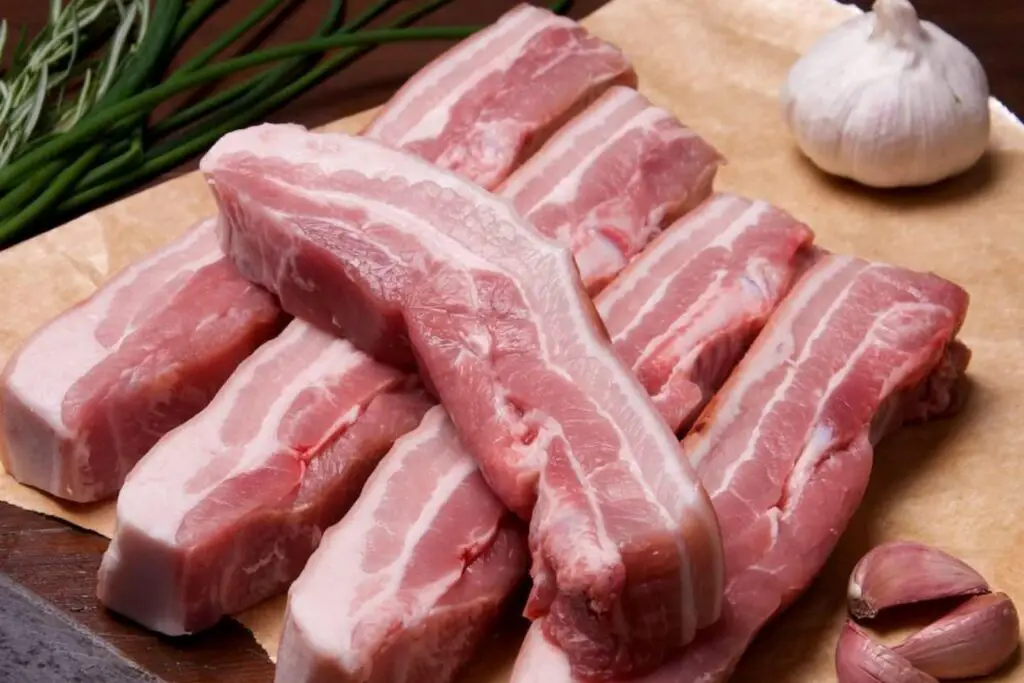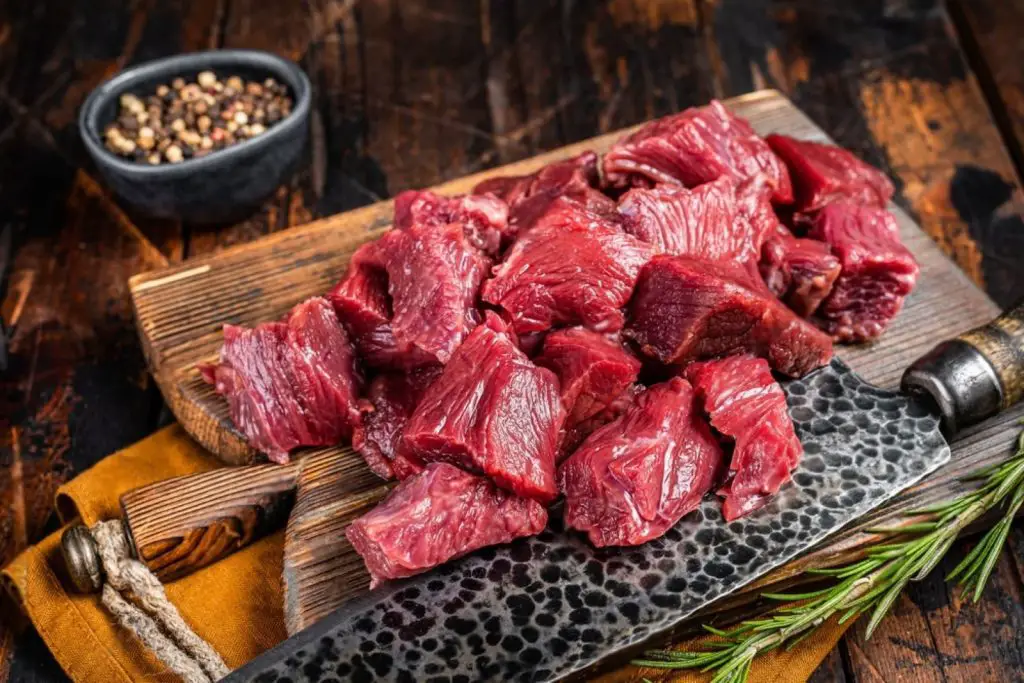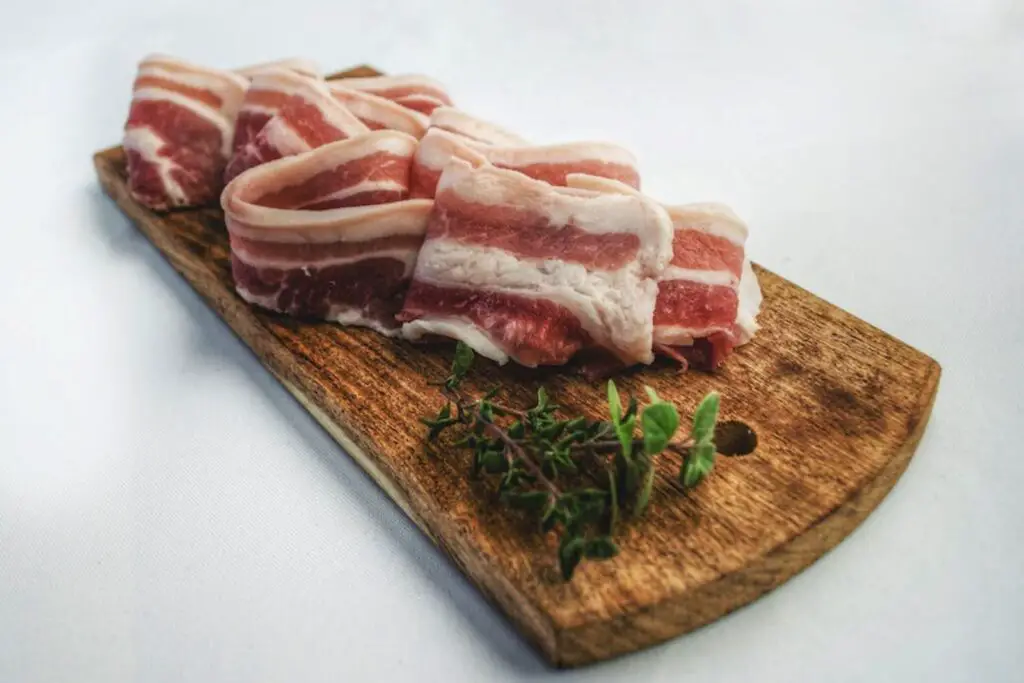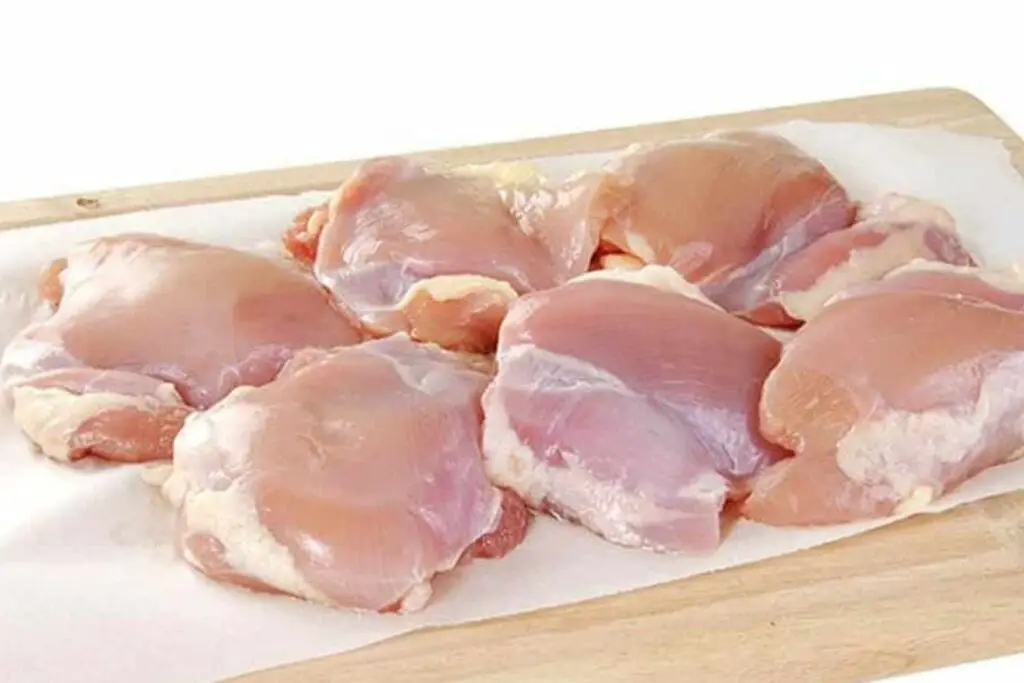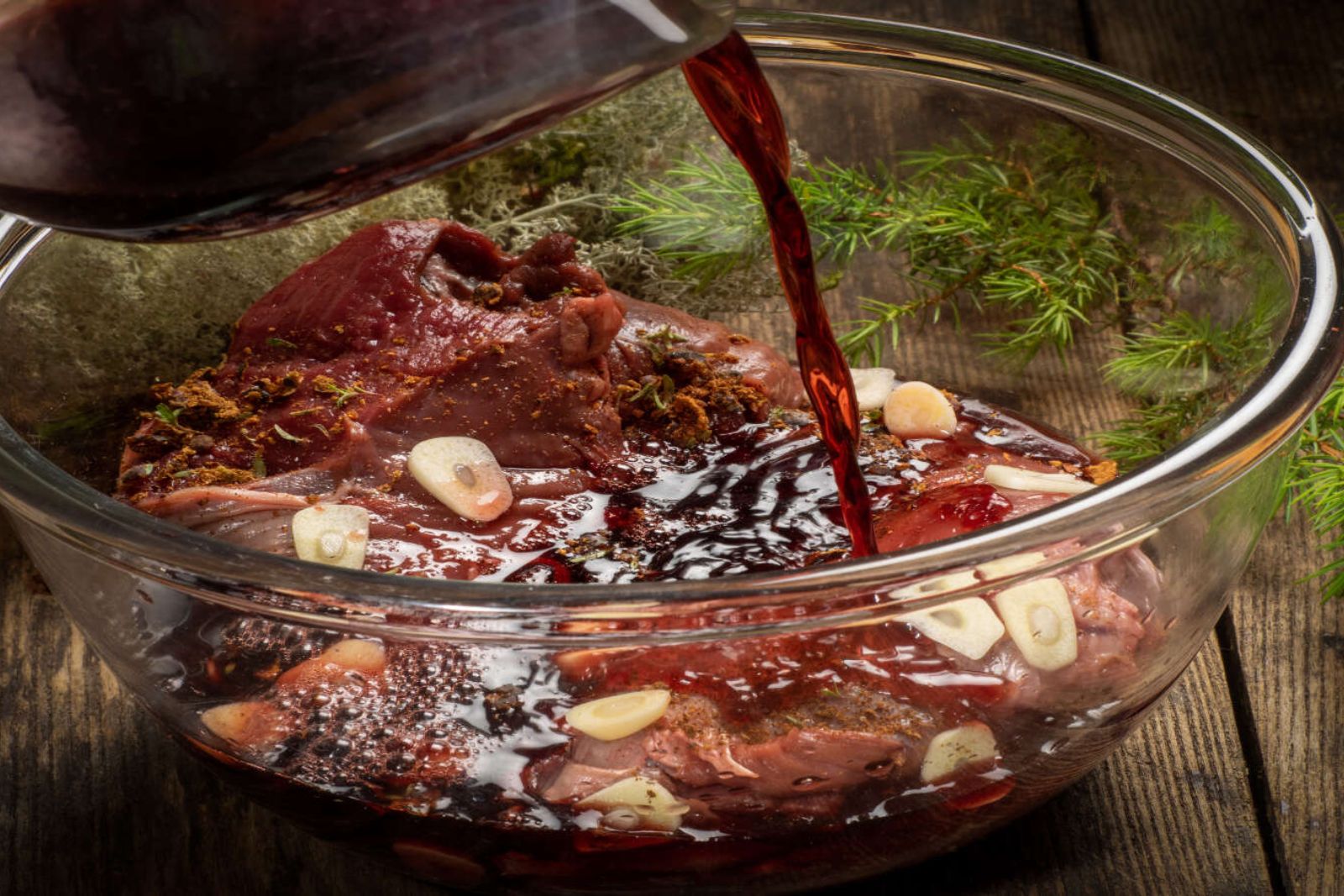
Marinating meat is a popular culinary technique that infuses it with flavors and enhances its tenderness. Whether you marinated the meat for a special occasion or simply made extra portions, freezing it can be an excellent way to preserve its deliciousness for later consumption. By following some simple steps, you can freeze marinated meat while ensuring it maintains its taste and texture. This article offers a comprehensive guide on how to freeze marinated meat properly, allowing you to enjoy your flavorful creations at a later date.
Here’s a step-by-step guide on how to freeze marinated meat:
Step 1: Choose high-quality meat
Selecting high-quality meat is essential for the success of freezing marinated meat for several reasons.
Firstly, the flavor of the marinated meat largely depends on the quality of the meat itself. Fresh, high-quality meat tends to have a better taste and texture, which means that the marinade will have a more significant impact on enhancing its natural flavors. On the other hand, using low-quality or less fresh meat may result in a less enjoyable eating experience, even after marinating and freezing.
Secondly, high-quality meat is less likely to have any spoilage or bacterial issues. When you freeze marinated meat, you are essentially preserving it for an extended period. If the meat used is already starting to spoil or is not handled properly, freezing it will not magically make it safe to eat later on. In contrast, fresh and high-quality meat reduces the risk of contamination and ensures that the marinated meat remains safe and delicious after freezing.
Furthermore, better cuts of meat are often more tender and juicy, which can be crucial during the thawing and cooking process. Freezing can cause the water molecules in the meat to form ice crystals, and if the meat is already tough or dry, it can become even more so after thawing. High-quality meat is generally more resilient to the freezing process, maintaining its tenderness and juiciness, resulting in a more satisfying meal.
Lastly, opting for meat from a trusted source ensures that you are getting exactly what you pay for. This means that the meat is not excessively treated with additives or preservatives, which could affect the overall taste and quality of the marinated meat. Moreover, knowing the source of your meat allows you to make informed decisions about its quality, ethical practices, and sustainability.
Step 2: Marinate the meat
Marinating the meat is a crucial step in the process of freezing marinated meat, as it imparts flavor, tenderness, and juiciness to the final dish. The marinade is a mixture of herbs, spices, oils, acids, and other flavorful ingredients that infuse the meat with delightful taste sensations. Understanding and executing this step properly is essential for achieving a delicious and well-seasoned marinated meat after freezing.
When preparing the marinade, you have the flexibility to use various ingredients based on your personal preferences and the type of meat you are marinating. Common marinade components include herbs like rosemary, thyme, and oregano; spices such as black pepper, paprika, and cumin; oils like olive oil or sesame oil; and acidic ingredients like vinegar or citrus juices. The combination of these elements can create a unique and flavorful marinade that complements the natural taste of the meat.
To coat the meat thoroughly with the marinade, you have two primary methods: immersing it in a container or placing it in a resealable plastic bag. Both methods are effective and allow the marinade to come into direct contact with the meat’s surface. Immersing the meat in a container means submerging it completely in the marinade, ensuring even coverage. Using a resealable plastic bag allows you to remove excess air, ensuring that the marinade evenly coats the meat while minimizing the risk of leaks or spills.
The marinating time is critical for allowing the flavors to penetrate the meat fully. The recommended marinating time varies depending on the type and thickness of the meat, as well as the strength of the marinade. For example, delicate meats like fish or poultry may require a shorter marinating time, usually around 30 minutes to 2 hours. On the other hand, tougher cuts of beef or pork may benefit from marinating for several hours or even overnight to achieve the desired tenderness and flavor intensity.
During the marinating process, the acids in the marinade (such as vinegar or citrus juice) help break down the muscle fibers in the meat, leading to increased tenderness. Additionally, the herbs, spices, and other flavorful ingredients infuse the meat with their distinct tastes, enhancing the overall eating experience.
After the marinating time is complete, the meat is ready for freezing. The combination of the marinade and freezing process ensures that the flavors are locked into the meat, and when it’s eventually thawed and cooked, the result is a delicious, well-seasoned dish that is sure to impress.
Should I freeze marinated meat in portions or as a whole?
Freezing marinated meat in individual portions can be convenient, as it allows you to thaw and cook only the amount you need. However, freezing larger cuts as a whole can also be practical if you plan to use the entire piece for a specific recipe. Properly wrapped portions or whole cuts can both be successfully frozen and used later.
Can I freeze marinated meat with acidic ingredients like lemon juice or vinegar?
Yes, you can freeze marinated meat with acidic ingredients like lemon juice or vinegar. The acidity in the marinade can help tenderize the meat during freezing. Ensure the meat is appropriately wrapped or stored in airtight containers to preserve its quality.
Step 3: Prepare for freezing
Preparing the marinated meat for freezing is a critical step to ensure that the meat maintains its quality and texture during the freezing process. While the marinade imparts delicious flavors and tenderizes the meat, excess marinade can cause some issues during freezing if not properly removed.
When meat is frozen, the water molecules within it turn into ice crystals. If there’s too much liquid on the meat’s surface, including excess marinade, it can lead to the formation of large ice crystals, which can cause the meat to become mushy or develop an undesirable texture when thawed and cooked later.
To prevent this, it’s essential to remove any excess marinade from the meat’s surface before freezing. There are two common methods to achieve this:
- Lightly pat the meat dry with paper towels: Gently dab the surface of the marinated meat with paper towels to soak up any excess liquid. Avoid pressing too hard, as you don’t want to remove the flavorful marinade that has been absorbed into the meat. This method is effective for smaller cuts of meat or when you don’t have a lot of liquid to remove.
- Let the meat rest on a wire rack: Place the marinated meat on a wire rack or a plate with raised edges and let it rest for a few minutes. The excess marinade will naturally drip off the meat, leaving it with the perfect amount of flavor while reducing the excess liquid. This method works well for larger cuts of meat or when the marinade has thoroughly coated the meat’s surface.
By removing excess marinade before freezing, you not only prevent potential texture issues but also ensure that the meat’s flavors are preserved effectively. The marinade has already penetrated the meat during the marinating process, so removing excess liquid won’t compromise the taste.
Once the excess marinade has been removed, it’s crucial to proceed with the freezing process promptly. Avoid letting the marinated meat sit at room temperature for an extended period, as this can encourage bacterial growth and compromise the safety of the meat. Instead, proceed to wrap or place the meat in airtight containers, label and date the packages, and transfer them to the freezer as soon as possible.
Can I freeze marinated meat in the marinade?
While you can technically freeze marinated meat along with the marinade, it’s generally better to remove excess marinade to prevent mushiness during freezing. If you want to preserve the flavors, consider storing the meat in a separate airtight container and using the marinade as a sauce or glaze when cooking the meat.
Step 4: Wrap or use airtight containers
Properly wrapping or using airtight containers is a crucial step in freezing marinated meat to maintain its quality and prevent freezer burn. Freezer burn occurs when the surface of the meat is exposed to air, causing dehydration and oxidation, which can negatively impact the taste and texture of the meat. By taking the right precautions, you can preserve the flavors and juiciness of the marinated meat, ensuring a delicious meal when it’s time to cook it.
- Individually wrapping each piece of marinated meat:
One effective way to prevent freezer burn is by individually wrapping each piece of marinated meat. You can use plastic wrap or aluminum foil for this purpose. The wrap forms a protective barrier around the meat, preventing air from coming into direct contact with the surface. This method is particularly useful for smaller cuts of meat or when you want to freeze individual portions separately.
When wrapping the marinated meat, ensure that it is tightly sealed to minimize air exposure. It’s also a good idea to double-wrap the meat if using plastic wrap to provide an extra layer of protection against freezer burn.
- Using airtight containers:
Airtight containers are another excellent option for freezing marinated meat. They create a secure seal that prevents air from entering the container and coming into contact with the meat. When using containers, make sure they are specifically designed for freezer use to withstand the low temperatures without cracking or becoming brittle.
When placing marinated meat in airtight containers, leave some space at the top to account for expansion during freezing. Liquids in the marinade may expand when they freeze, and leaving room for this expansion prevents the containers from cracking or leaking.
Whether you choose to individually wrap the marinated meat or use airtight containers, both methods effectively protect the meat from freezer burn. By keeping air out, you maintain the integrity of the marinade’s flavors and the meat’s tenderness and juiciness.
Additionally, proper wrapping or container usage allows for easy organization in the freezer. Label each wrapped piece or container with the type of meat and the date it was frozen, so you can easily identify and use them within the recommended storage time.
In conclusion, wrapping marinated meat in plastic wrap or aluminum foil, or using airtight containers, is essential to prevent freezer burn and preserve the meat’s taste and texture. These methods create a protective barrier against air exposure, ensuring that the flavors and juiciness of the marinated meat remain intact until you’re ready to cook it. By taking the time to wrap or containerize the marinated meat properly, you set the stage for a delightful culinary experience when it’s time to enjoy your frozen, marinated creations.
Can I freeze marinated meat in glass containers?
Yes, you can freeze marinated meat in glass containers, but ensure they are labeled as freezer-safe and have enough space at the top to accommodate expansion during freezing. Avoid using ordinary glass jars or containers not designed for freezing, as they may crack or shatter due to the low temperatures. Opt for freezer-safe glass containers or use plastic wrap or aluminum foil to individually wrap the marinated meat before placing it in glass containers.
Can I freeze marinated meat in the original store-bought packaging?
It’s not recommended to freeze marinated meat in its original store-bought packaging, as these packages are not designed for long-term freezing. Instead, transfer the marinated meat to airtight containers or wrap it securely in plastic wrap or aluminum foil before freezing to prevent freezer burn and maintain its quality.
Step 5: Label and date the packages
Labeling and dating the packages of frozen marinated meat is a crucial step in maintaining organization, ensuring food safety, and maximizing the quality of the frozen meat. When you have multiple packages of marinated meat in the freezer, it can be challenging to identify their contents and freezing dates, especially as time goes by. Properly labeling and dating the packages will help you keep track of what you have in the freezer and ensure that you consume the marinated meat within the recommended storage period.
- Organization and Identification: Labeling each package with its contents allows you to quickly identify what type of marinated meat is in each package. This is particularly useful when you have various types of meat stored in the freezer, such as chicken, beef, or pork. Proper labeling prevents confusion and saves you from having to open packages to identify their contents.
- Freezer Inventory: By keeping track of what marinated meat you have in the freezer, you can better plan your meals and avoid waste. Knowing the quantity and variety of marinated meat available helps you prepare ahead of time and ensures that you utilize your frozen supplies efficiently.
- Food Safety: Dating the packages is essential for ensuring food safety. All frozen foods have a limited storage time before their quality begins to degrade. By dating the packages, you can keep track of how long the marinated meat has been in the freezer. This information allows you to use the oldest packages first, reducing the risk of consuming meat that may have exceeded its recommended storage time.
- Optimal Quality: Freezing does not preserve food indefinitely, and marinated meat is no exception. The flavors and textures of the marinated meat may start to decline after a certain period. By dating the packages, you can ensure that you consume the marinated meat while it is still at its best quality and flavor.
To label the packages, use a waterproof marker or freezer-safe labels. Include essential information such as the type of meat (e.g., “Chicken,” “Beef,” “Pork”), the cut of meat if applicable (e.g., “Chicken Breasts,” “Sirloin Steak”), and the date it was frozen (e.g., “Froze on: MM/DD/YYYY”). Place the label prominently on the package for easy visibility.
Regularly checking and rotating your frozen marinated meat based on their dates will help you use them in a timely manner, avoiding any wastage and ensuring that you enjoy the best quality meals from your freezer. It’s a simple but effective practice that can make a significant difference in your frozen food management and overall culinary experience.
Step 6: Freeze the marinated meat
Freezing the marinated meat properly is crucial to preserving its texture, taste, and overall quality. By following the recommended freezing guidelines, you can prevent the formation of large ice crystals, maintain the integrity of the marinade, and ensure the safety of the frozen meat.
- Freezing Quickly: When you place the wrapped or containerized marinated meat in the coldest part of your freezer, it allows the meat to freeze quickly. Rapid freezing helps to minimize the formation of large ice crystals within the meat. Smaller ice crystals are less damaging to the meat’s cell structure, preserving its texture and juiciness when it’s later thawed and cooked. Slow freezing can lead to the formation of larger ice crystals, causing damage to the meat’s fibers and resulting in a loss of moisture and tenderness.
- Maintaining Flavor and Quality: The rapid freezing process also helps to preserve the flavors of the marinade. The cold temperatures prevent the breakdown of the marinade’s components, ensuring that the meat remains infused with the delicious flavors and aromas when it’s eventually cooked. This results in a well-seasoned and appetizing dish when you prepare the marinated meat after freezing.
- Safe and Efficient Freezing: Keeping the freezer temperature at or below 0°F (-18°C) is essential for safe and efficient freezing. At this temperature, the growth of harmful bacteria and microorganisms is inhibited, reducing the risk of foodborne illnesses. It also helps to maintain the quality of the meat over an extended period. For the best results, use a reliable thermometer to monitor and regulate your freezer’s temperature regularly.
- Minimizing Freezer Burn: Freezer burn occurs when the surface of the food is exposed to air, causing dehydration and oxidation. By freezing the marinated meat quickly and at the recommended low temperature, you reduce the chances of freezer burn. Proper wrapping and containerization, along with the rapid freezing process, create a protective barrier against air exposure, preserving the meat’s taste and texture.
When freezing marinated meat, it’s important to avoid overcrowding the freezer. Leaving enough space around each package allows the cold air to circulate freely, enabling uniform freezing. Additionally, freezing marinated meat in smaller, individual portions can be beneficial, as it allows for easier thawing and cooking of only the amount needed at a given time.
How long can I store frozen marinated meat?
Frozen marinated meat can be stored for up to 3 months while maintaining its quality and taste. Beyond this period, the meat may still be safe to eat but could experience some degradation in flavor and texture. Properly labeled and dated packages in the coldest part of the freezer can help you keep track of the storage time and ensure you consume the marinated meat within its recommended shelf life.
Step 7: Thaw and cook the marinated meat
Thawing and cooking the marinated meat properly are essential steps to ensure both its safety and the best possible taste and texture when served. Improper thawing can lead to foodborne illnesses and compromise the quality of the marinated meat. Following the correct thawing and cooking procedures will help you enjoy a delicious and safe meal.
- Thawing in the Refrigerator: Thawing the frozen marinated meat in the refrigerator is the safest method. It allows the meat to thaw slowly and evenly, minimizing the risk of bacterial growth. As the meat thaws, any bacteria that may be present can start to multiply rapidly when exposed to warmer temperatures. Thawing in the refrigerator keeps the meat at a constant, safe temperature, preventing the rapid bacterial growth that can occur when thawing at room temperature.
- Even Thawing: Thawing in the refrigerator ensures that the entire piece of meat thaws at a consistent rate. This is important for maintaining the meat’s texture and juiciness. When meat is thawed unevenly, it can result in some parts of the meat being overcooked while others remain undercooked. Thawing in the refrigerator helps to avoid these uneven cooking issues.
- Avoiding Temperature Danger Zone: The “temperature danger zone” is the range between 40°F (4°C) and 140°F (60°C), within which bacteria can grow rapidly in food. Thawing meat at room temperature can cause it to linger in this danger zone for an extended period, increasing the risk of bacterial growth and foodborne illnesses. Refrigerator thawing keeps the meat below this temperature range, ensuring its safety.
To thaw marinated meat in the refrigerator, place the wrapped or containerized meat on a plate or tray to catch any drips. Allow enough time for the meat to thaw fully, as larger cuts may take up to 24 hours or more. For faster thawing, you can use the defrost setting on your microwave. However, if you opt for this method, it’s crucial to cook the meat immediately afterward to prevent bacterial growth on the partially thawed portions.
Once the marinated meat is fully thawed, it’s essential to cook it promptly and thoroughly. Cooking meat to the proper internal temperature kills any harmful bacteria that may have developed during thawing. Using a meat thermometer to check the internal temperature ensures that the meat is cooked to a safe level for consumption.
Can I use frozen marinated meat directly on the grill or stove?
Yes, you can cook frozen marinated meat directly on the grill or stove. However, it’s best to thaw the meat in the refrigerator first for even cooking and to ensure that it reaches the proper internal temperature. Thawed marinated meat is less likely to have unevenly cooked portions, and it will result in a more delicious and juicy final dish.
Other related questions
Can I refreeze marinated meat?
It is generally safe to refreeze marinated meat if it has been thawed in the refrigerator and not left at room temperature for an extended period. However, each refreezing cycle may affect the meat’s texture and quality, potentially leading to some loss of flavor and tenderness. It is best to thaw only the amount of marinated meat needed for immediate use to avoid the need for refreezing.
How do I know if the marinated meat has gone bad after being frozen?
To determine if marinated meat has gone bad after being frozen, use your senses and observe any changes. Look for signs of freezer burn, such as discoloration, dry or frosty patches on the meat’s surface. Check for an off smell or sour odor. If the texture appears mushy or slimy, or if there are any unusual colors or an unpleasant odor, discard the marinated meat as it may have spoiled during freezing or thawing.
Can I reuse the marinade after freezing the meat?
It is not recommended to reuse the marinade that has come into contact with raw meat, especially after freezing. The marinade may have picked up bacteria from the meat during the marinating process and can be unsafe for consumption. Instead, if you wish to use the marinade as a sauce or glaze, reserve a portion of it separately before marinating the meat, and use it exclusively for that purpose.

